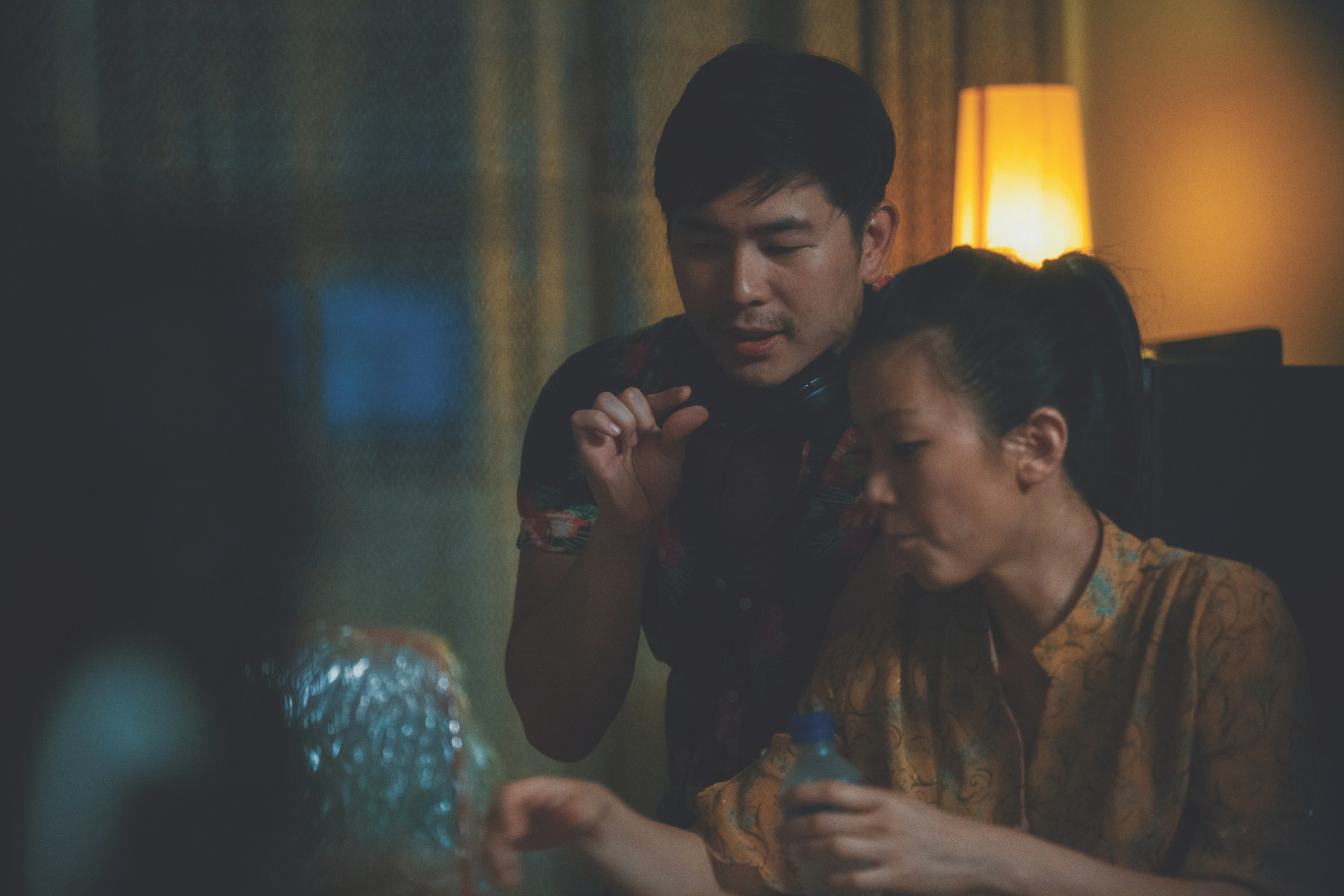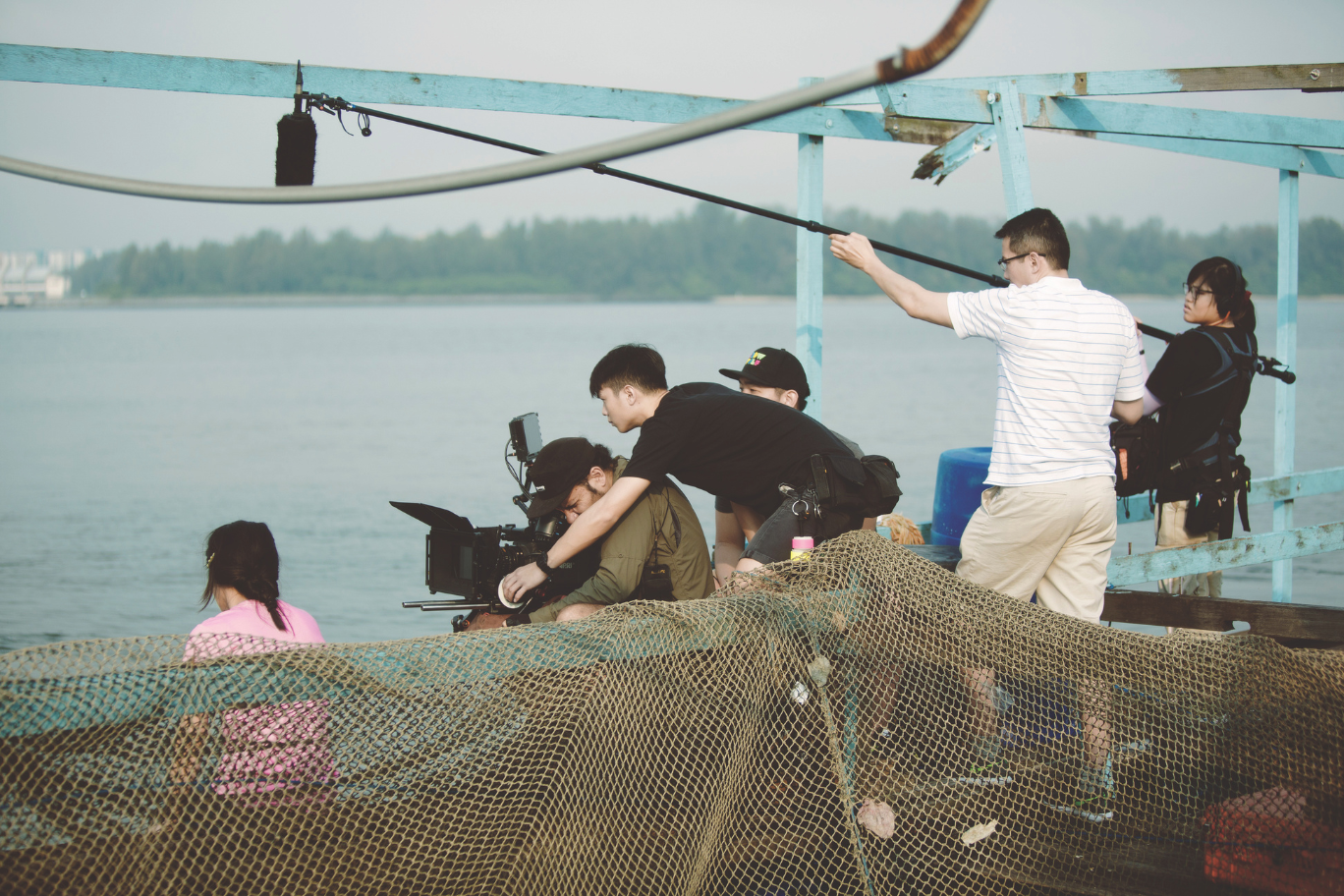In Edwin Ho’s short film 1056 Metres, an ailing woman played by Pamelyn Chee, crosses the causeway from Johor Bahru to Singapore to ask her estranged brother for a kidney.
It is a story built on desperation, but its power lies less in the dialogue than in the pauses and silences. Every unspoken word of longing, every glance heavy with regret or tentative hope, carries more weight than anything said aloud. The restrained performances create a quiet tension that resonate long after the credits roll – proof of the filmmaker’s assured hand as a storyteller and his instinct for portraying the unvoiced struggles of those who live on the margins.
Yet for all the pathos of this story, few in Singapore may know his name. This is because the director-writer is based between New York and Paris, where he has built his career. Yet the heart of his work often traces back to his life experiences in Singapore.

His path to filmmaking was hardly straightforward. As the first in his family to attend university, he felt the pressure to choose a practical degree that would allow him to “make a living in Singapore”. He studied communications at Nanyang Technological University, but the filmmaking courses he took shifted his trajectory . “I discovered this medium that I really liked — telling stories,” he recalls. “Film was always a place I could escape to, a world I could inhabit for a couple of hours.”
That spark led him to Columbia University in New York, where he pursued a Master of Fine Arts in Film Directing. Ho gravitated towards European art house and American indie films that privilege character and human connection over spectacle, influences that echo in his own subtly powerful narratives. More importantly, they affirmed his belief in film as a vessel for inspiring empathy and raising visibility.
“Representation is vital because it allows us to imagine hope and a future for ourselves, especially for those living outside the mainstream,” he says. “It reminds us that we are part of the world’s story and that our lives have a place in the collective narrative.”
(Related: How Randy Yeo of Practice Theory Built A Singapore Design Studio With Global Impact)
 FILM STILL FROM 1056 METRES
FILM STILL FROM 1056 METRES
It is an approach that has already begun to garner international recognition. 1056 Metres was presented by the Lincoln Center during the New York Asian Film Festival’s Emerging Asian Filmmaker Showcase and later at its Diversity & Inclusion Film Festival. Now, he is developing his first feature film, There Is Only One Season, a coming-of-age story of a girl in contemporary Singapore, in which he will weave in some of his own experiences.
The story is also shaped by the women who raised him – he grew up in a matriarchal household that revolved around his mother, grandmother, and elder sister. Their strength and resilience, often expressed in understated ways, left a lasting impression. For instance, love was rarely expressed through words, but through acts of care like his grandmother ensuring he never went without, even when money was tight and his mother’s determination to hold the family together.
One moment that stayed with him was on the eve of his sister’s wedding, when his mother advised her not to confront a husband directly if he ever strayed, but instead to let him feel the weight of his guilt and return on his own. “It’s the kind of quiet code you find in Asian families,” Ho reflects. “Women are expected to keep the family intact, no matter what happens.”
 EDWIN HO BEHIND THE SCENES
EDWIN HO BEHIND THE SCENES
In building his career abroad, Ho has discovered that the themes of strength and sacrifice he absorbed growing up transcend geographical borders. For instance, 1056 Metres was originally a story by a Columbia University classmate, set along the US-Mexico border, but Ho saw parallels with the Singapore-Malaysia context and adapted it accordingly.
“When I screened the short film, the setting did not matter as much as the story itself,” he reflects. “The emotions, the empathy between characters, the human connection – it all translated. It showed me that what I am doing can be universally understood, no matter where the story takes place.”
While he hopes to have more opportunities to screen his work in Singapore, he says that living abroad has given him access to a different range of opportunities to develop his craft of filmmaking.

Going to graduate school in New York City, for instance, immersed him in a thriving film ecosystem and offered connections that proved crucial to his early career. He worked as a VR director-producer in a New York studio, creating award-winning experiences for clients such as the US Air Force, the International Rescue Committee, Swarovski, and Vanity Fair. He credits the city’s sheer scale and proximity to a major film industry with showing him what was possible, from building a network of collaborators to understanding emerging media like virtual reality.
Now that he spends a significant amount of time in Paris where his husband is based, Ho is busying himself with projects that reflect his ethos. Beyond establishing his own film company, he has also founded the Diversity Apéro Club, a social initiative dedicated to promoting inclusion in the arts.
He says, “We need to not only have authentic representation, but to create it ourselves. If not, we risk simply adopting portrayals from other cultures that do not truly speak to our lived realities.”







 FILM STILL FROM 1056 METRES
FILM STILL FROM 1056 METRES
 EDWIN HO BEHIND THE SCENES
EDWIN HO BEHIND THE SCENES





 Back
Back
